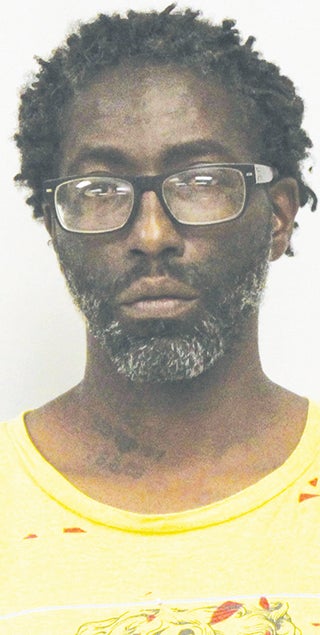After 5 years, woman found guilty of DWI
Published 9:43 am Thursday, September 22, 2016
It took a jury less than 15 minutes to decide a Raleigh woman was impaired during a trip through the county from Huntersville to Rural Hall more than five years ago.
Sabrina Lynn Broadwell, 59, was living temporarily with a friend in Huntersville in July 2011, until she could find housing of her own. She had spent the weekend moving from a large home to the friend’s home.
For her job, she was traveling to Rural Hall in the morning of July 25, to give a presentation. Sgt. Brian Baker of the NC Highway Patrol was in the median in a construction zone off I-40 east when he observed Broadwell’s BMW speeding and swerving from the right lane into the left as the car passed him.
He testified in Davie Superior Court that Broadwell was slow to stop her vehicle after he activated his blue lights, and the erratic driving continued for about a half a mile before the vehicle stopped.
“The driver was sluggish and had slurred speech. She staggered on her feet and swayed two to three feet while I was talking to her,” Baker said.
Broadwell told him she had not been drinking but had been taking Ambien, a medication to treat insomnia.
Baker called Trooper Chad Roten to assist and stayed while Roten had Broadwell perform field sobriety tests.
Roten testified that when he arrived, Broadwell had to “use both hands to climb out of her car. Her hair and clothes were disheveled and she had to hold onto her car for balance.” Roten had Broadwell perform the walk and turn, one-legged stand, finger-to-nose and Romberg balance tests.
On the walk and turn test, he said, she started too soon, stopped too early, missed heel-to-toe and stepped off the line. He had to stop the one-legged stand test three seconds in because she almost fell down, and on the finger-to-nose test, she started too soon, used opposite hands from what he told her, and missed her nose five out of six times. She swayed severely, he said, on the Romberg balance test, and estimated 48 seconds as 30 seconds.
Broadwell told him she had not been drinking.
Roten transported her to the hospital to have blood drawn and then to the magistrate’s office, where he said, despite being handcuffed, she was still trying to perform the one-legged stand.
She testified later she did not know he could see her doing that, and that she was just trying to do it because he could and she couldn’t.
She told Roten she had “taken just one Ambien,” before going to bed around 12:30 a.m. and waking up around 6 a.m., and that she had not had breakfast before starting her trip.
Broadwell’s attorney, Jon Welborn, asked Roten: “Did you not think a medical issue was causing a problem? Did she not express to you she was dizzy or light-headed prior to being stopped?”
Roten said no.
During the tests, Roten said, Broadwell told him, “I can’t do this test sober. I’m just tired from moving all weekend.” She also told him in the process of moving, she had hurt her knee and cut a finger.
Aaron Joncich, a forensic scientist manager with the state’s crime lab, said the lab was backlogged so there was a three-year delay in processing Broadwell’s blood sample.
Two samples were taken from Broadwell. Both samples tested positive for dipenhydramine, desvenlafaxine, and zolpidem. Dipenhydramine is an antihistamine found in Benadryl and other medications, desvenlafaxine is an anti-depressant with the brand name Pristiq, and zolpidem is Ambien.
All of them, Joncich said, have the potential to cause sleepiness and drowsiness.
One of the samples, the first one, contained benzodiazepine, a tranquilizer found in Valium and Xanax. The second sample did not show benzodiazepine.
Dr. David Burrows, a lab supervisor and forensic toxicologist, testified for the defense that the presence of a drug in one sample and not the other could indicate a laboratory mix-up, and the samples could have come from different people.
He testified he believed an expired reagent was used in the tests, and the tools used in the testing had not been calibrated on the required schedule.
Broadwell, 59, testified her physician told her she had a “blood loss issue,” and they had been working to find the source of her fatigue and dizzy spells. She had suffered from dizzy spells that caused her to have to lie down at work and have other people drive her, but said that day, she woke up feeling fine after a good night’s sleep courtesy of the Ambien she took around 11:30 p.m.
All was going well, she said, until she was between highways US 64 and US 601, when she “began to feel light-headed and started looking for an exit.”
Roten testified she passed several exits before finally stopping around the Main Church Road overpass.
She said she told Baker she was dizzy and consented to be tested for alcohol because she knew she hadn’t been drinking. The sobriety tests she was asked to do were impossible for her, she said, because she was very dizzy and had a knee injury.
“When I told him I couldn’t do the tests, I meant it didn’t matter when he gave them to me, that I couldn’t do them,” Broadwell testified.
Sometime after her arrest, she said she was diagnosed as anemic and gives herself weekly injections of vitamin B-12, which has stopped the dizzy spells.
She said she had taken Pristiq for a short period of time but had stopped a week before her arrest because she did not like how the medication made her feel. She had taken Ambien with the belief it would be out of her system before she left home.
Broadwell said she asked the samples be re-tested but got information there was not enough blood to do that.
In his closing, Welborn told the jury Broadwell was “suffering from a dizzy spell caused by an undiagnosed medical condition.”
He said Broadwell had ingested a valid prescription medication but it wasn’t reasonable to believe she would have taken it and then driven if she didn’t feel she could. He cited the testimony of the expert witnesses, Joncich and Burrows, and doubt surrounding the false positive of benzodiazepine in the first sample and the failure to calibrate the pipettes used in the lab as reasons to find the state had not proved Broadwell was guilty.
“It’s not a crime to suffer a medical condition and not be able to drive normally. It’s not a crime to take a prescription medicine and drive. The state had to prove she was appreciably impaired and they did not do that,” Welborn told the jury.
Assistant District Attorney Steve Boone told the jury Broadwell’s bad driving, poor performance on the field sobriety tests, slow responses and slurred speech, her admission that she took Ambien, and the presence of it in her blood proved she was impaired.
Noting that at least one juror had questioned the length of time it took to process the blood, Boone said, “I would suggest an appropriate remedy is to write a letter to your legislator or vote for an appropriate candidate. The length of time is not relevant in this case. Nobody is happy about it but it is what it is.”
Judge William Z. Wood sentenced Broadwell to 60 days, suspended 12 months unsupervised probation. She must perform 24 hours community service, obtain a substance abuse assessment and follow any recommended treatment, surrender her license and not operate a vehicle until licensed.
She is eligible for a limited driving privilege and must pay a $100 fee for that, a $600 lab fee, a $100 fine and court costs.



